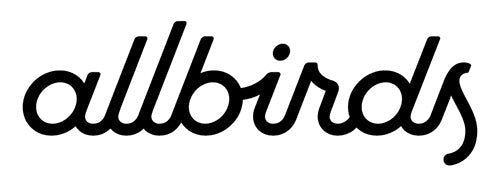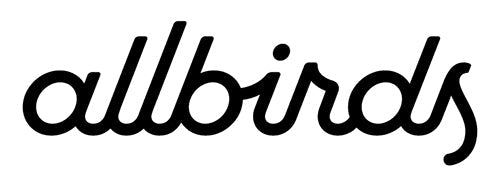Products that are created in collaboration
By offering a carefully selected collection of products to suit every season, we are able to ensure a small, close-knit supply chain. We enter into close, multi-year relationships with production sites and stay in constant contact: We visit them, they visit us. In addition to our own audits, we accept mutually recognized third-party standards to prevent audit fatigue in production facilities and ensure safe, legal, humane and ethical manufacturing practices.
Our Code of Conduct
We are committed to ensuring that working conditions in Allbirds' supply chains are safe, workers are treated with respect and dignity, and manufacturing processes are environmentally responsible. Allbirds' direct suppliers (Tier 1), including subcontractors, are required to comply with the laws, rules and regulations of the country in which they operate in all activities. To further promote social and environmental responsibility, this Supplier Code of Conduct ("Code") goes beyond the ILO core labor standards.
Here you can read the entire Code of Conduct for Suppliers.
Audits & assessments of production facilities
In addition to the obligations set out in the Code, our direct suppliers must also participate in independent, external social and environmental audits. Before a factory is approved for production with Allbirds, it must pass such a social and environmental audit. This includes confidential interviews with workers, inspection of documentation and records and a visual inspection of safety conditions. Allbirds' audits are conducted in accordance with international labor standards and local legislation. If there are discrepancies between the two, the more stringent requirements are applied. We try to audit all factories that manufacture Allbirds products at least once a year.
The audits result in an assessment that classifies factories as green (low risk), yellow (medium risk), orange (high risk) or red (zero tolerance). Works that are classified as orange or red are not approved. In the admission criteria you can find out more about our assessment method.
The purpose of an audit is not only to approve a factory, but also to check the progress of factories or identify areas where improvements are needed.
Improvement measures
After a responsible sourcing audit has been conducted, Allbirds expects action to be taken to correct any non-compliance with the Code. Corrective Action Plans (CAPs) are used to announce what actions are or should be taken. The purpose of a CAP is to ensure that the factory and Allbirds agree on how to correct the violations that have occurred and prevent them in the future.
The factory prepares a CAP which includes 6 important elements:
- Violation identification
- Underlying cause
- Proposed immediate action
- Proposed preventive measure(s)
- Target completion date
- Person(s) responsible
Depending on the severity and nature of the non-compliance, Allbirds may, at its discretion, conduct follow-up audits on CAP progress to verify whether the non-compliance is remediated or has already been completely eliminated. This is how Allbirds proceeds:
- For high-risk violations, Allbirds organizes an external follow-up audit (either on-site or as a desk audit) after the "targeted completion date" specified in the CAP has passed. Desk audits are only used if there are no previous convictions.
- For low or medium risk health & safety non-compliances - except if related to certificates (building/fire/environment etc.) - the local Allbirds production team (Vietnam) will take care of the improvements.
- If the local Allbirds production team cannot resolve the violations on site, the Allbirds sustainability team will conduct a desk audit with the factory to address the violations found.
- In all cases, the Allbirds sustainability team will assist the factory to develop CAPs to identify root causes and sustainable solutions for the factory.
Worker voices
A typical survey, where a factory is reviewed once or twice a year, does not give companies or suppliers the big picture view they need to drive significant business improvements. The introduction of worker surveys is therefore a scalable approach to gathering anonymous feedback from large workforces. They provide the company with valuable insights into working conditions, working hours, employee-manager relations and employee retention.
During the evaluation, workers are invited to participate in an anonymous mobile survey via Laborlink technology. This employee sentiment survey covers the following topics: Relationship with supervisor, trust in grievance mechanisms, working hours, wages as well as plans to continue working at the plant.
Subcontracting
Allbirds' suppliers may not subcontract work on Allbirds products without prior written authorization. And for such approval, the subcontractor must agree to comply with the Supplier Code of Conduct.
In addition to complying with the Code, we ask subcontractors to complete a detailed factory sustainability questionnaire and provide external audits that have been conducted at the production facility in the last 12 months. If we manufacture a particularly large number of Allbirds products in a subcontractor factory, we also include this subcontractor in our audit program for direct suppliers.
Supply chain transparency and traceability
At Allbirds, we work hard to maintain a stable, respectful and resilient relationship with our suppliers. This ensures that our relatively short supply chain makes progress in terms of innovation and reduced environmental impact. By offering a carefully controlled collection of products, we are able to maintain a small, close-knit supply chain.
All of our direct suppliers participate in our social audit and environmental programs and from 2022 we will begin to include our strategically important second-tier suppliers in these programs. Our goal is to integrate 100% of our most important second-tier suppliers into our social audit and environmental programs.
We know 100% of our first and second-tier suppliers and aim to reach 100% of our suppliers across the supply chain by 2025.
In line with our goals from the 2025 Flight Plan, we have expanded our list of direct end product manufacturers and suppliers which is updated annually and extended to additional supply chain levels.
Environmental policy and program
As the majority of our CO2 emissions and other environmental impacts are generated within our supply chain, it is extremely important that we ensure that our partners' policies and practices promote the protection, preservation and improvement of the environment. It is important that our supply chain, from the raw materials to our manufacturers, is in line with our environmental protection requirements.
We have therefore our environmental protection policy and program which sets out environmental practices at company and supplier level and reinforces our ongoing commitment to reducing our impact on the planet. The program includes expectations regarding the environmental impact of our internal operations, our supply chain and our raw materials.
Animal Welfare Policy
Allbirds believes that all animals should be treated well and is committed to ensuring a high level of animal welfare in its supply chain. We are committed to the use of responsibly sourced raw materials, which includes the use of products of animal origin.
Wool is one of Allbird's most important raw materials and is currently the only animal fiber we use in our products. Our animal welfare policy ensures that our wool is sourced in accordance with high standards of farming, land management and animal welfare.
Human rights policy
Our human rights policy sets out our commitment to respect and defend all human rights wherever we operate. We also aim to respect the rights of those who are directly or indirectly affected by our operations and supply chain.
The guidelines explain our commitment, potential human rights risks and efforts to mitigate these risks and uphold human rights. We want to ensure that our policies respect and promote human rights in a way that brings about meaningful and lasting positive change.



